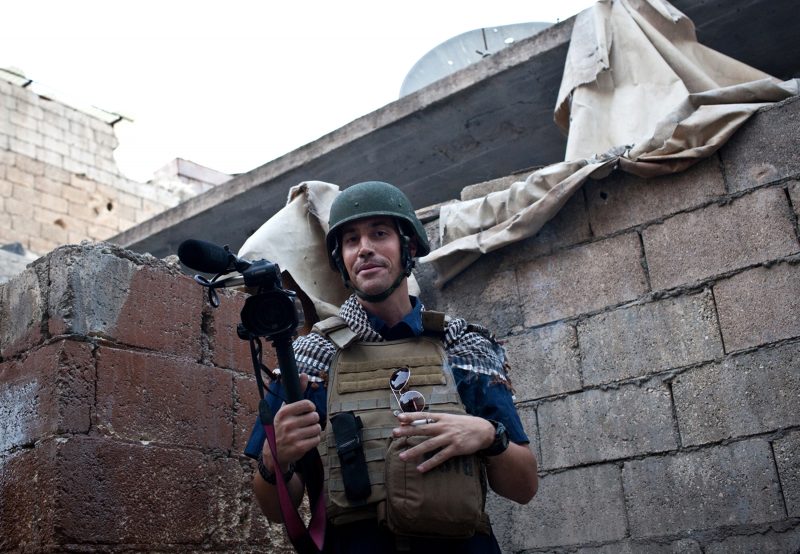US support for hostages, families improved but needs remain: report
American freelance journalist James Foley, seen here in a 2012 file photo, was kidnapped in Syria and murdered by the Islamic State group (NICOLE TUNG)
Washington (AFP) – The US government has become more responsive to the needs of Americans held hostage abroad and their families since a 2015 policy review but more needs to be done, according to a report published on Monday.
The report was prepared by the James W. Foley Legacy Foundation, named after the American freelance journalist who was abducted by the Islamic State group in Syria and murdered in August 2014.
It is based on interviews with 27 people: former American hostages, family members of current and former hostages, and others detained unlawfully.
Authored by researcher Cynthia Loertscher, the report examines the support they received from the government and outlines several areas for potential improvement.
Overall, it found the US government has improved its support for American citizens held abroad and interaction with their families since president Barack Obama announced a series of reforms in June 2015.
Positive steps include creating an interagency Hostage Recovery Fusion Cell (HRFC) and office of State Department Special Presidential Envoy for Hostage Affairs.
The special envoy, in particular, “has proven essential in assisting families and managing the diplomatic aspects of hostage recovery efforts.”
“Families perceive that the US government is placing a higher priority on bringing their loved ones home and is providing more candid assessments of both their relative’s circumstances and potential recovery options.
“This contrasts sharply with the experience of families of hostages prior to the 2015 policy change,” the report said. “Increasing prioritization of bringing Americans held as hostages home must be continued.”
Families are receiving more frequent and accurate briefings from US officials, the report said, and “family engagement efforts have also been largely successful.”
“However, even after the 2015 policy changes, some families still expressed confusion over roles within government agencies and have requested more regularly scheduled meetings and updates,” it said.
“Consequently, there must be an increase in communication and coordination efforts from the HRFC, ensuring that relevant information is shared quickly and fulsomely with families.”
– More mental, physical support needed –
The Foley Foundation report said more clarity is needed about whether families could face prosecution over ransom payments to groups designated as terrorist organizations.
“The US government’s ambiguous stance on the legality of paying private ransoms creates concerns for families, third party intermediaries, and supporters,” the report said.
The report also outlined a need for increased support for hostages following their release from captivity and for their families.
“Returning hostages need continuing mental and physical health support upon their return,” it said.
“The families of hostages also require robust assistance to address ruined credit and other day-to-day financial challenges both during and after hostage incidents.
“The US government should explore how it can help address these critical but unmet needs of hostages and their families,” it said.
Those interviewed for the report were five former hostages, 14 hostage family members, three hostage family representatives, one former detainee, and four detainee family members.
Detainees were defined as those held unlawfully or wrongfully by a foreign government rather than by criminals, terrorists or pirates.
Disclaimer: Validity of the above story is for 7 Days from original date of publishing. Source: AFP.


